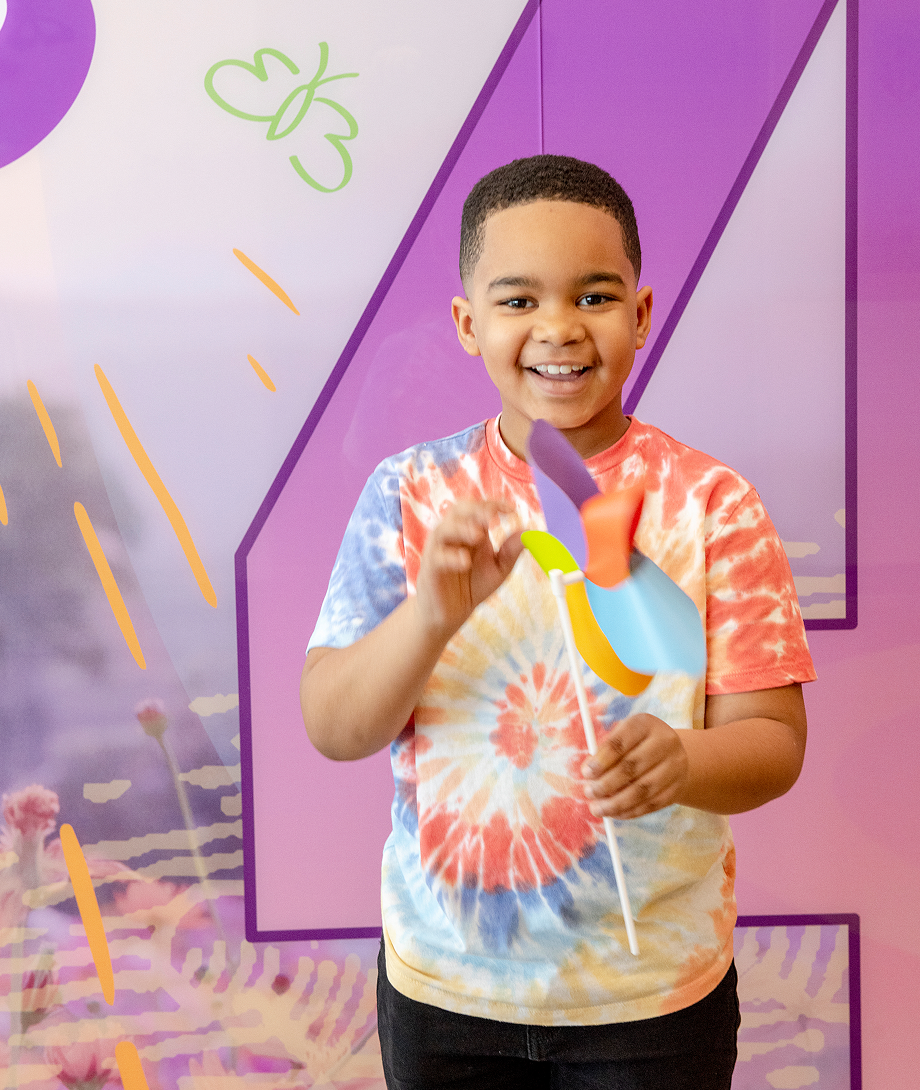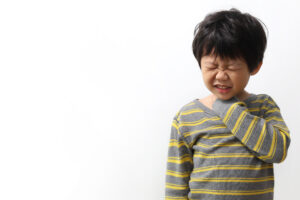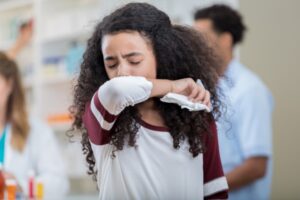when to be concerned about RSV
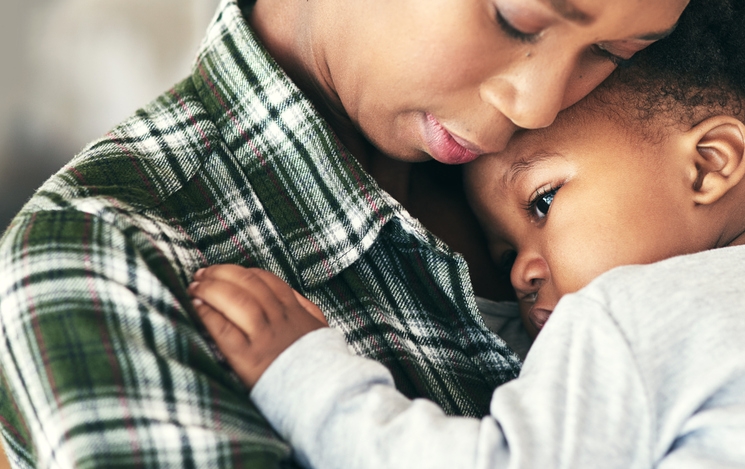
in this article:
what is RSV?
Respiratory syncytial virus, also known by its initials ‘RSV,’ is one of the many different viruses that can cause infections in the nose, throat, and lungs. It typically causes infections during the late fall through early spring months. According to the Centers for Disease Control (CDC) virtually all children get an RSV infection by the time they are 2 years old. Most of the time RSV will cause a mild, cold-like illness, but it can also cause severe illness, such as:
- Bronchiolitis (inflammation of the small airways in the lung)
- Pneumonia (infection of the lungs)
what are the symptoms of RSV?
RSV infections generally begin with symptoms like those of the common cold.
Symptoms can include:
- Runny or stuffy nose
- Cough
- Decreased appetite
- Sometimes fever
While symptoms in most children, adolescents and adults remain limited to those of a cold, in some infants and young children, RSV may progress to cause an infection in the lungs. In fact, RSV is the most common cause of bronchiolitis (a swelling of the smallest breathing tubes in the lungs).
when should I be concerned about RSV?
RSV infection in the lungs can cause symptoms such as:
- Wheezing
- Difficulty breathing
- Grunting
- Flaring of the nostrils
what do I do if my child has RSV?
If your child is sick, contact their pediatrician first, even if it is after office hours. They can help direct you to the best care for your child’s condition.
If your child has a persistent high fever after Tylenol, is breathing fast for a long period of time, or is struggling to breathe they should be seen by a medical provider immediately.
If your child is in a situation that is not an emergency, seek care at an alternative location, like urgent care, to allow quicker care for those with emergent needs.
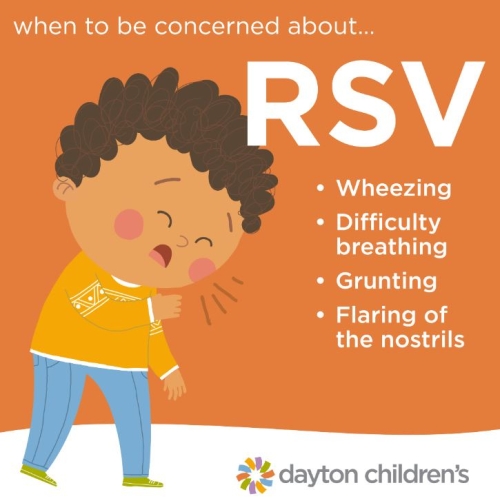
how is RSV treated?
There are no specific medications available to kill the virus or shorten the length of symptoms, and so treatments should be aimed at keeping a child comfortable. Such treatments might include using nasal saline with gentle bulb suctioning or a cool-mist humidifier to break up mucus and decrease nasal congestion.
The CDC states that one to two out of every 100 children younger than twelve months with RSV infection may need to be hospitalized. Those who are hospitalized may require oxygen, intubation, and/or mechanical ventilation (help with breathing). Most improve with this type of supportive care and are discharged in a few days.
what can we do to protect our children from RSV?
The CDC recommends these tips:
- Ask your pediatrician about new protections against RSV. An RSV vaccine is recommended for all pregnant women who are at 32–36 weeks of their pregnancy from September through January. This vaccine can protect the newborn from severe RSV illness. There is also a monoclonal antibody vaccine approved for children younger than 8 months. If the RSV vaccine is given to the mother during pregnancy, the baby will likely not need the antibody shot. Read more here.
- Wash your hands often with soap and water for at least 20 seconds, and help young children do the same. If soap and water are not available, use an alcohol-based hand sanitizer. Washing your hands will help protect you from germs.
- Keep your hands off your face. Avoid touching your eyes, nose, and mouth with unwashed hands. Germs spread this way.
- Avoid close contact with sick people. Avoid close contact, such as kissing, and sharing cups or eating utensils with people who have cold-like symptoms.
- Cover your coughs and sneezes. Cover your mouth and nose with a tissue or your upper shirt sleeve when coughing or sneezing. Throw the tissue in the trash afterward.
- Clean and disinfect surfaces. Clean and disinfect surfaces and objects that people frequently touch, such as toys, doorknobs, and mobile devices. When people infected with RSV touch surfaces and objects, they can leave behind germs. Also, when they cough or sneeze, droplets containing germs can land on surfaces and objects.
- Stay home when you are sick. If possible, stay home from work, school, and public areas when you are sick. This will help protect others from catching your illness.
here when you need us
Whether you’re looking for the right provider, ready to make an appointment, or need care right now—we’re here to help you take the next step with confidence.
